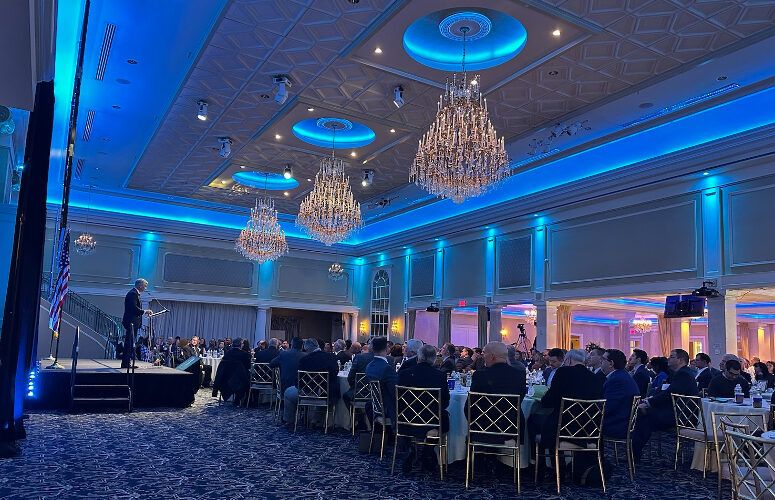
Workforce Development Outreach
Discover how state government entities, business organizations, institutions of higher education and nonprofit agencies are battling the ongoing workforce shortage.
On Aug 2, 2023Employees in New Jersey and around the country are faced with a skilled worker shortage. According to an article published by the US Chamber of Commerce, there are currently 9.9 million job openings in the US, but only 5.8 million unemployed workers, and a large number of the unfilled jobs are skilled labor positions. In New Jersey, the workforce shortage is seen in industries such as healthcare, manufacturing, construction, utilities and hospitality, to name a few. On the following pages, we hear from various organizations about the roles they are playing in feeding the pipeline of skilled workers so that businesses can operate at productivity levels they should be capable of; creating jobs and wealth for families and homeowners while improving the general economy.
Preparing NJ’s Workforce for the Future, Now
The New Jersey Department of Labor and Workforce Development (NJDOL) is laser-focused on bringing high-quality employment to all New Jerseyans, and assisting employers with building the skilled workforces they need to be competitive.
An effective avenue is apprenticeship, which provides training, a wage, and a pathway to advancement for workers, as well as a built-in talent pipeline and model for succession planning for businesses.
Since 2019, the state has invested $50 million in grants promoting the creation and development of apprenticeship, pre-apprenticeship, and work-based learning programs, leading to a 97% increase in apprenticeship programs.
With workforce diversification at the forefront, apprenticeship is providing unprecedented opportunity to underserved populations. Tightened public contracting laws require public works contractors to participate in Registered Apprenticeship programs, reinvesting public dollars in our workforce. Apprenticeship is also being explored as one solution to worker shortages in healthcare, education, and more.
NJDOL enthusiastically undertook responsibility for administering minor working papers so we can be there from the start. Teens now get their working papers online at MyWorkingPapers.nj.gov, where they can also find career resources to learn about different paths for their future.
The state may have recovered the jobs lost to the pandemic, but this is no time to slow down. We’re preparing our workforce for the future, now.
NJBIA Advocates for Innovative Solutions & Partnerships
Workforce development has never been more critical as employers continue to navigate an evolving workforce. Advocating for innovative workforce solutions and creating partnerships to advance career opportunities for New Jerseyans is at the forefront of the New Jersey Business and Industry Association’s (NJBIA) government affairs efforts.
NJBIA is proud to partner with the New Jersey Council of County Colleges (NJCCC) through the NJ Pathways to Career Opportunities initiative. The program is a groundbreaking collaborative effort between employers, labor unions, educational institutions, and workforce development partners to provide opportunities to New Jerseyans in four key growth industries: health services; manufacturing and supply chain management; technology and innovation; and infrastructure and energy.
Also, we are proud to partner with the New Jersey Manufacturing Extension Program (NJMEP) to promote the manufacturing industry. As the manufacturing workforce continues to age and retire, it is more important than ever to promote high-paying, sophisticated opportunities in the industry. NJBIA is proud to be a leading supporter of S-659/A-2014 (Oroho/Conaway), the “Manufacturing in Higher Education Act,” alongside NJMEP and NJCCC. This legislation would create a comprehensive and multi-faceted plan to improve the quality of the manufacturing workforce and highlight the numerous opportunities in the industry.
Lastly, NJBIA continues to work with the NJDOL and the State Legislature to tackle the shortage of healthcare professionals. The association proudly partnered with the NJDOL, Middlesex County Office of Workforce Development, and the Home Care and Hospice Association of New Jersey to host a healthcare job fair this past spring. The job fair was the first of many events we hope to host in order to raise awareness and attract new employees into the field. NJBIA continues to support and promote a comprehensive package of bills sponsored by Assembly Majority Leader Lou Greenwald to streamline licensure processes and loan redemption programs for healthcare workers and expand training opportunities in the field.
Preparing for the Manufacturing Job Boom
With the ink having barely dried on the federal CHIPS and Science Act and on the New Jersey Offshore Wind Project contracts, the manufacturing industry is expected to experience growth not unseen in the past few decades – with most estimates hinting at more than 50,000 new jobs being added in the construction and manufacturing sectors alone. This is great news for domestic manufacturing and the economy, but it could spell disaster for businesses that are ill-prepared to meet this oncoming challenge – particularly in terms of workforce development.
The manufacturing sector in New Jersey is already facing a labor shortage with nearly 30,000 unfilled jobs in the sector, and adding another 50,000 jobs could very well tip the scales. These upcoming projects need workers, and these emerging sectors could pull talent from existing manufacturing sectors with the promise of higher compensation, if only temporary, and training. It’s more important than ever for manufacturers to consider reinvesting in their workforce to secure their talent.
Luckily for manufacturers, there are plenty of resources small businesses can turn to in order to combat the skills gap and labor shortage. There are more than 6 million unemployed civilians in United States, with a further 400,000 unemployed veterans, according to the latest Bureau of Labor Statistics data. A fact that the New Jersey Defense Manufacturing Community Consortium (NJDMCC) plans to remedy.
The NJDMCC is an initiative developed by NJMEP and includes partners like CCM, AACCNJ, SHCCNJ, Bridging the Gap and others. The program offers veterans and their families access to no-cost training certifications specifically tailored to advanced manufacturing roles.
Since 2000, NJMEP’s mission has been to train and upskill the manufacturing workforce and has helped create and retain more than 50,000 jobs in New Jersey.
NJRC Helps Provide Second Chances Through Job Training
The New Jersey Reentry Corporation (NJRC) is dedicated to preparing persons returning from the trauma of war, addiction treatment, and incarceration to productive living. As part of our mission to provide Second Chances, reduce recidivism, and promote safe communities, NJRC is committed to “industry-recognized” credentials, which provide national and state certifications within reentry-friendly industries. Whether CDL, HVAC, General Construction, or Phlebotomy, “industry-recognized” credentials, training, and workforce development are integrally important to ensure that court-involved persons are able to develop meaningful careers.
The Governor’s Reentry Training and Employment Center in Kearny offers “industry-recognized” credentials for program participants in various industries. While the employment rate for persons released from federal prison after one year is 37.5%, the employment rate for NJRC program participants is 56.77%. For those NJRC program participants graduating from the Employment Center and receiving “industry-recognized” credentials, the employment rate is markedly higher, above 80%.
This summer, thanks to leadership of President Reber of Hudson County Community College and President Aaron Fichtner of the New Jersey Council of County Colleges, NJRC is working to provide credential training for upwards of 200 court-involved young adults through the Summer Training Institute. It will provide training in two specific cohorts: 1) General Construction, including
Construction, Forklift, and OSHA-30; and 2) Healthcare, including Phlebotomy, Medical Coding, Peer Recovery Specialist, and Emergency Medical Responder/Emergency Medical Technician (in partnership with RWJBarnabas). NJRC will also provide – to those interested – the opportunity for Cisco Certification and Microsoft Basics to gain the technological and soft skills needed to succeed in the job market.
Meaningful Workforce Development Starts at NJ’s Vo-Tech Schools
At the heart of workforce development is employee development, and that occurs early on in New Jersey across the 21-county vocational-technical school districts. More than 34,000 high school students benefit from career and technical education (CTE) that not only helps them develop technical skills, but also professional skills.
District programs encourage competencies like problem solving, communication and responsibility by presenting students with real-world projects in their fields of interest.
Customized classroom spaces and instructors with industry experience guide students through focused learning that includes opportunities for work-based learning, accumulation of industry credentials and college credits, and participation in career development contests through student leadership organizations.
The involvement of employers and labor unions is equally important to giving students a head start toward achieving career and college success. Such professional partners provide internships, apprenticeships and other workplace learning opportunities for students. County vocational-technical school districts also rely on these partners, as well as labor market data and regional needs assessments to adjust curricula and program offerings.
Construction is now underway at many schools that received more than $250 million to date in state Career and Technical Education expansion grants, following the 2018 passing of the Securing Our Children’s Future Bond Act. The projects help meet student demand with added seats and evolving workforce needs with new career programs. Highly anticipated programs that will soon welcome students are those in advanced manufacturing, allied health, cybersecurity, global logistics and supply chain management, and sustainable construction and green technology.
To access more business news, visit NJB News Now.






